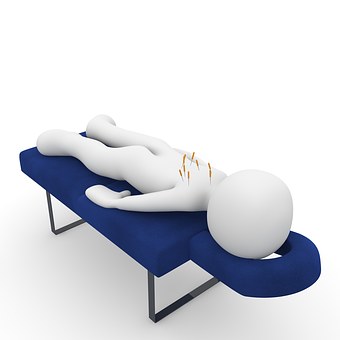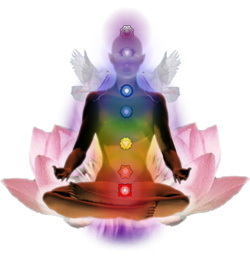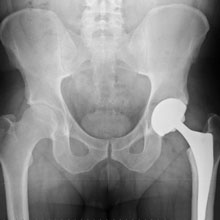Acupuncture – Doing For Women What Drugs Won’t
To practitioners of acupuncture, modern chemical medicines must seem stunningly young and underdeveloped. Acupuncture is a traditional Chinese medicine which has been used for thousands of years and remains popular today – giving practitioners plenty of time to perfect the technique. Modern science, despite its proclivity for dismissing traditional medicines out of hand, has been unable to deny the beneficial effects of acupuncture. The British NHS even recommends it for the treatment of back pain and migraines. However, the benefits of acupuncture can go far beyond alleviation of back pain and migraines. With many problems specifically affecting females being caused by hormone flow and circulatory issues, acupuncture can be a powerful tool in improving physical health, mental health, and quality of life for women.
How It Works
Opinions vary as to exactly how and why acupuncture works the way it does. Those who subscribe to the traditional Chinese view believe that the body contains a life energy known as ‘Qi’ (pronounced ‘chee’), which flows through channels in the body known as ‘meridians’. Acupressure points along the meridians act a little like gateways. When hair-thin acupuncture needles are applied to these points, the ‘gateways’ are opened wide. This clears away any stagnation, allowing the qi to flow freely and go about its beneficial business in the body and mind. Those with a more scientific bent are skeptical about qi, but do agree that acupuncture relieves muscle tension and improves circulation and nerve function. They believe that acupuncture also stimulates the central nervous system, encouraging the body to release neurotransmitters and hormones which can provide a bolstering effect to the immune system as well as generally improving mental and physical performance.
What It Does
Whichever view you believe, one thing is absolutely clear – the effects of acupuncture are entirely natural. Whatever acupuncture does, it does it by triggering the body’s own mechanisms, not through the application of alien chemicals. Chemical medicines often merely treat symptoms, and drugs can even mask the root cause of a problem. While they have undoubted benefits, many find that common drugs can put them out of touch with their own bodies – taking painkillers, for example, can obstruct the message that your body is trying to tell you. Masking pain with painkillers can be harmful, as the sufferer – feeling no warning signs which would otherwise tell them to desist – continues to undertake actions which are harming their body. Acupuncture uses no artificial drugs, and has no ‘masking’ effect. Instead, it uses the body’s own resources to treat problems at the source.
Eliminating PMT
For women, acupuncture has proven hugely effective in the relieving of PMT symptoms. Acupuncture needles stimulate pressure points which affect female hormones, eliminating build up and stagnant hormonal imbalance which improves the overall monthly experience. Clean hormonal flow can eliminate the stress of PMT, as well as stopping the swelling and altered complexion which distresses many women just before their period. During the period itself, those who suffer from crippling period pains could find their symptoms considerably alleviated by acupuncture. Skillfully applied acupuncture can relax the uterus, easing cramps and improving the flow of blood. Acupuncture’s undisputed positive effects upon circulation can also be brought effectively into play in the treatment of menstrual symptoms. Those who have acupuncture to alleviate period pains frequently report that their menstrual blood becomes brighter and clearer – indicating that the blood flow has been significantly improved. A clean and improved menstrual flow prevents the blood from clotting within the womb, thus rendering its passing much more painless.
Alleviating Stress
Acupuncture is a hugely beneficial practice, which can be learned by anyone who wishes to help their fellow human beings. Quite apart from anything else, acupuncture is a hugely relaxing experience. Stress is a major problem for modern society, and has enormous knock on effects for both mind and body. Women struggling to conceive, for example, may find their hormone levels adversely affected by stress – which is in itself a stressful fact. The stress cycle is a vicious one, and works in tragic manner against prospective parents. Acupuncture, however, can both calm the anxious woman and improve her hormonal flow, making her more likely to conceive. After birth, post-natal acupuncture can help to re-balance feminine hormones, and alleviate the many stresses and strains that come with new maternity. To be able to improve someone’s chances of conception and, after essentially giving them the incomparable gift of a child, to aid their body in the maternal journey must be a hugely fulfilling experience for those who perform female-specific acupuncture. With stress and maternal pressures being such a rising problem in society, those acupuncturists who wish to aid their fellow women in alleviating these pressures through acupuncture need only rent a therapy room and await the custom which would surely come their way.
Acupuncture For Women
It is a sad fact of modern life that so many of the problems which afflict women are seen as somewhat nebulous, cannot be satisfactorily reduced to cause and effect by modern scientists, and are thus dismissed by the medical profession. Period pains, for example, are frequently scoffed at, with the patient effectively being told to ‘man up’ and get on with it. These problems nonetheless cause profound distress to many women, and have a hugely negative impact upon their lives. There is a thorough lack of understanding about just how debilitating serious cramps can be – and the painkillers which may be prescribed only mask the overall problem. Acupuncture, on the other hand, not only improves cramps by eliminating their source, but also acknowledges what is often summarily dismissed as ‘women’s problems’, and aids the female body and mind in a manner which modern medicine apparently does not wish to entertain. Those suffering from such ‘women’s problems’ could do a lot worse than to consult an acupuncturist.












